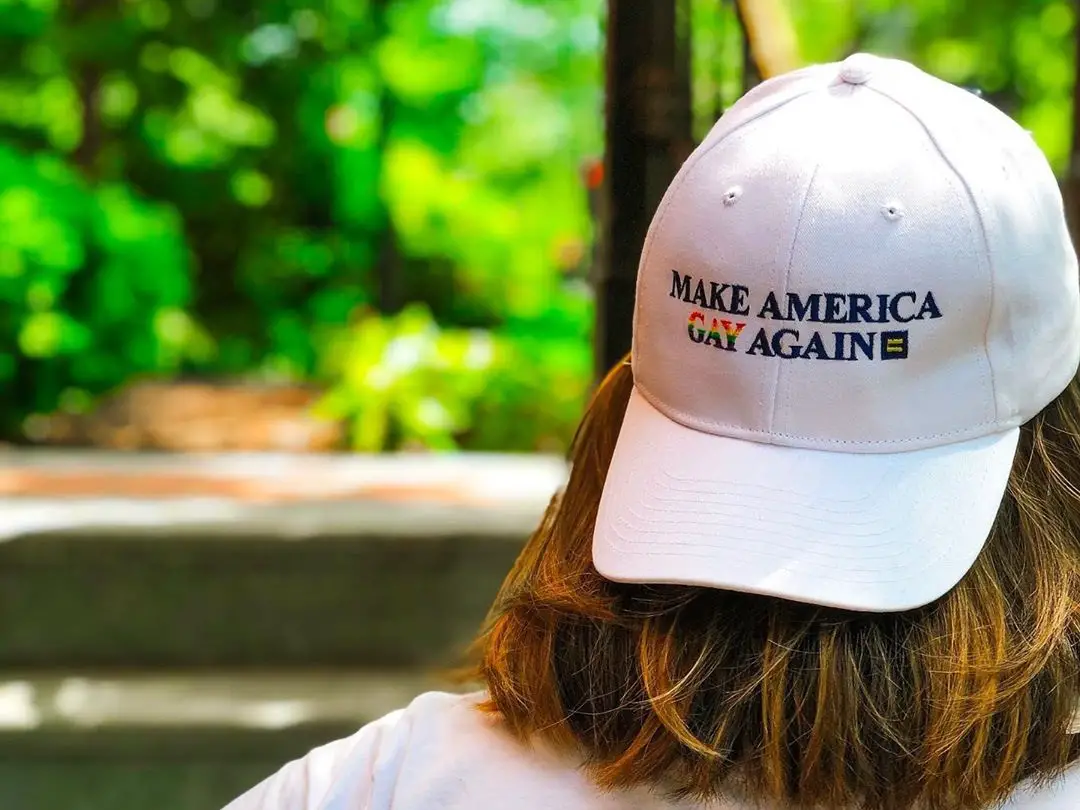June is Pride Month, and if you didn’t already know that, you probably could have guessed as much when all of your favorite companies suddenly started adding rainbows to their logos. Pride Month celebrates the history of the LGBTQ+ community (also referred to as the queer community). Pride Month began as “Gay Pride Day,” in response to the Stonewall Riots in 1969; now, there are events throughout the entirety of June, including symposiums, workshops, memorials, concerts and parades.
You’ve probably heard of the Human Rights Campaign, which is the most widely recognized queer advocacy group in the United States. Most large-scale pride parades are thrown by the HRC, but in addition, the organization uses a great deal of their donations toward political lobbying. (You can read about the HRC’s expenditure reports here.)
That’s pretty much it. The nation’s most powerful queer organization is, essentially, a cog in the capitalist machine. That’s not to say Americans can’t benefit from the HRC’s efforts, but it’s not the most direct way to get things done.
It’s a similar situation to the corporations who were quick to change their profile pictures to incorporate pride flags on June 1. This type of performative allyship is commonly referred to as slacktivism, where little to no work is performed in order to make the contributor feel good about themselves. Changing a profile picture, wearing rainbow-colored gear and parading down a busy street are examples of slacktivism.
Now, that’s not to say that these types of activities are pointless, because they raise awareness and can be empowering for the individuals who participate, but it’s important to realize that corporations will benefit the most from all of this. Ultimately, they see Pride Month as a great way to target an untapped market, and, though seemingly harmless, the more funds that are poured into Pride-themed products, less funding is available for organizations working to effect real change.
So, if you’re planning on buying a pair of rainbow-striped briefs this month, don’t feel ashamed, but understand what you’re paying into. There are companies who use their power for good (like Harry’s, which is donating 100 percent of their Pride proceeds to The Trevor Project), so do some research first and find out where your money will be best spent.
We're so proud to work with partners who create visibility and donate to support LGBTQ youth during #Pride 🌟 100% of profits from @harrys Shave With Pride Set benefit our life-saving work! 🌈 You can purchase them here: https://t.co/uMquUts2el
— The Trevor Project (@TrevorProject) May 15, 2019
The other issue with corporations getting involved is that they can hide under the guise of inclusivity. Take the HRC, for example. They claim to be queer advocates, but a focus group administered by the Pipeline Project says otherwise. According to the report, sexism within the organization has been a strong issue.
There is “no real push for diversity,” it explains, and the leadership culture is predominantly made up of cisgender white men. Moreover, the trans and gender non-conforming staff reported that they “frequently feel tokenized” and did not have adequate access to safe bathrooms. This is, unfortunately, a common narrative, in which companies look great on paper but, in practice, do little to improve conditions for their LGBTQ employees.
But workplace politics aside, capitalism has never been meant for marginalized groups. Cisgender, white members of the queer community have the privilege to participate in parades and Pride merchandise without thinking about how it all came to be. Pride month was built on the backs of queer people of color, who, even today, experience higher rates of homelessness, poverty, discrimination, imprisonment and police brutality (which is especially ironic, considering that the Pride parades of today typically include a police escort and zero arrests).
Pride Month should really be about promoting lesser-known grassroots movements and getting local organizations to participate in real activism. While well-funded, nationwide organizations are important and effective, queer communities strongly benefit from the efforts of local movements, simply because they are the most immediate sources of change, and any donations go directly toward helping those in need. Additionally, many grassroots movements are organized and led by queer people of color. Thus, the queer community is allowed to take control of their own success and well-being.
Here are some examples of a few more well-known local organizations in major metropolitan areas across the United States. CenterLink provides a directory where you can access queer-allied organizations in your area.
— Chicago’s Center on Halsted, the city’s largest LGBT community center.
— The Sylvia Riviera Law Project in New York, which provides legal services for LGBT persons.
— The Mazzoni Center, which provides healthcare, counseling and legal resources in Philadelphia.
— The Latino Equality Alliance for the Latinx LGBT community in Los Angeles, which provides community outreach programs, leadership development and college support.
— The Philip Rush Center in Atlanta, which houses several small groups that support healthcare, legal services, education and cultural programs for queer individuals.
— Rainbow Elders, which provides services and programs to LGBT Seniors in Boulder County.
So, this month, when the festivities commence and parades take over the city streets, it’s important to remember all the work that has been — and is still being — done to make life better for the queer community. There’s nothing wrong with participating in a parade, but understand that it wouldn’t be possible without the efforts of organizations around the country.
Corporate involvement in queer issues can be a powerful tool for society if done right, but it is essential that companies are held accountable for their actions, should they try to hide behind their rainbow-colored products. Companies have a lot of power to make change, but capitalism is inherently structured to exclude people, and these are usually the same people these efforts are trying to benefit. Society can only get so far with corporate inclusivity.
If you, the consumer, buy wisely, your participation can heed great results. But if you really want to make a difference, donate your time or money to a grassroots organization in your area. Chances are that they could really use the help, and will use it well.
















